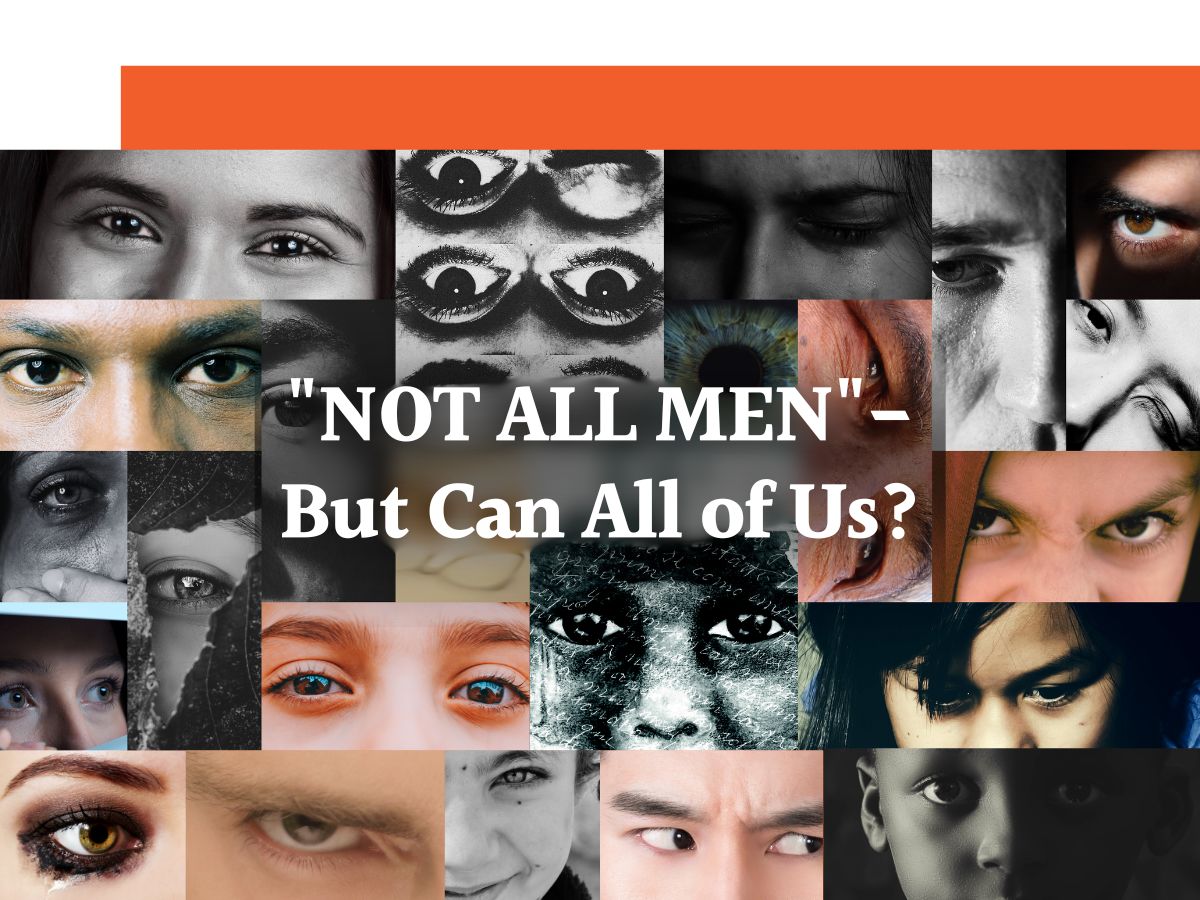
"Not All Men"- But Can All of Us?
To my fellow men, this isn’t a call-out; it’s a call-in. It’s a conversation we need to have—not with anger or accusations, but with understanding and empathy.
To every man who’s ever felt the need to say, “Not all men”—I hear you. It’s natural to want to defend ourselves, to clarify that we’re not part of the problem. But what if this isn’t about pointing fingers or placing blame? What if it’s about an invitation to join hands and make things better together?
We’ve all seen those posts or heard the phrase, “Not all men.” It’s a phrase that’s become almost reflexive in certain discussions, especially when the topic of misogyny, harassment, or gender inequality comes up. But here’s a gentle request, not just from me, but from many women: Can all of us—yes, all of us—stand up against misogyny?
Before the comments fill up with reminders that not all men are misogynists, let’s acknowledge something important: in some way, we all contribute, and that’s why we all have the power to change it.
The Weight of "All Men"
Imagine if you’re so annoyed, irritated, and angry with the phrase “all men,” how it must feel for women. Because yes, “All Women” deal with some level or kind of harassment, quite literally every day in their lives, from the moment they start understanding what good and bad feels like until the day they die. It’s exhausting, frustrating, and often terrifying.
When we hear “all men,” it’s not about every individual man being a perpetrator. It’s about the overwhelming and persistent experiences women face, where too often, men are the aggressors. And when we respond with “not all men,” we’re not only missing the point, but we’re also shifting the conversation away from the real issue.
The truth is, not all men are the problem. But yes, all men can be part of the solution. Not being part of the solution at this time is a bigger problem. What if we took a moment to consider the impact of our words and actions? The small, everyday things we do—or don’t do—that contribute to the broader culture of misogyny.
Small Actions, Big Impact
Let’s start with the little things that might seem insignificant but add up over time. Can we not laugh at a movie scene where a group of boys compare a woman’s body to a car’s new model? Can we refrain from sharing that viral stand-up clip where a comedian jokes about rape? Can we resist the urge to forward a sexist joke in our office WhatsApp group? Can we stop asking a woman how she’ll handle work pressure with family responsibilities, as if it’s solely her burden?
These actions might seem trivial, but they create an environment where disrespect and objectification become normalized. They send a message that these behaviors are acceptable, or worse, funny. But they’re not. They’re part of a broader problem that affects women every day, in ways that many men might not even realize.
Reflecting on Our Actions
It’s time to ask ourselves some hard questions. Do the women around you feel 100% safe with you? Have you always stopped someone from staring at a woman, even if she wasn’t your sister or friend? Have you always assured a female colleague that she can come to you if she feels uncomfortable around another male colleague? Have we created an environment where the women around us feel like they can speak up without fear?
These aren’t easy questions, and the answers might be uncomfortable. But they’re necessary. Because every day, women are navigating a world that often feels hostile, and we’re looking for allies who will stand beside us, who will listen without defensiveness, who will act with empathy and respect. When we hear “Not all men,” it feels like our experiences are being dismissed, like the conversation shifts away from what really matters: making things better for all of us.
The Power of Change
The list of questions is long, and the promises we can make are even longer. Every day, I hear from women who are scared, whose parents are scared. But this isn’t just about fear; it’s about the potential we have to change it. We can be part of a world where women feel safe, respected, and equal. It starts with small actions, with everyday choices. So, let’s stand up, together, as equals, and make this world a better place—not just for some of us, but for all of us.
This is our shared journey, and we need you with us, every step of the way. It’s not enough to simply say, “I am not like that.” We need to actively participate in creating a culture where misogyny is not tolerated, where women don’t have to fear for their safety or question their worth. We need to be the men who speak up, who challenge harmful behaviors, who make this world a safer, more respectful place for everyone.
So, instead of saying, “Not all men,” let’s start asking, “How can I help?” Let’s take responsibility, not because we are guilty, but because we care. Because we want a better world for our sisters, our daughters, our friends, and ourselves.
This isn’t just a moment; it’s a movement. And it needs all of us.


